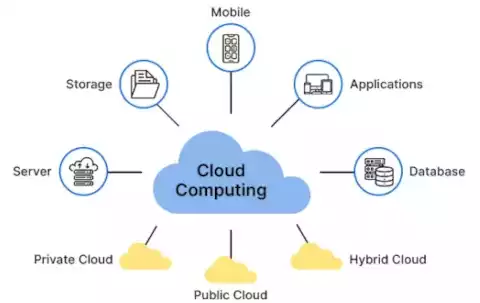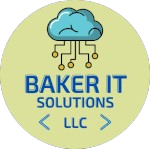
The initial cloud services most people were familiar with were online email services like AOL, Yahoo, or Google. The next evolution for most people was online storage services typically used for smartphones like iCloud storage, Microsoft Onedrive, and Google Drive typically used to backup people’s photos. Many have even become familiar with services to access software programs online like Microsoft 365 and Google Workspace. However, most are not familiar with the ability to have a computer accessible in the cloud. These services have been used by large corporations for years because they provide cost-effective, flexible resources to meet their growing needs without the cost, time, and complexity of installing and maintaining the hardware and software on-site. These services are becoming more prevalent for home users and small businesses alike.
Push to the Cloud
In the past, the trend was to get larger storage capacity on computers to enable larger amounts of data storage for operating systems, programs, and data storage. However, in recent years the trend reversed unless you have a specially built computer. Hardware manufacturers and program developers are assuming more users are taking advantage of cloud resources such as Google Drive and Microsoft Onedrive for storage. With the newer programs and computers themselves, home users themselves are being pushed more and more to start using cloud storage.
Pros and Cons
One obvious concern that is typically foremost in everyone’s mind about cloud technology is security and privacy. Can “big tech” see my data, do they have access to my data and are they truly securing it so others can’t see or access it?
In general, the answer to all of the above is YES. Reputable companies providing cloud services are taking extraordinary precautions to secure and protect your data with encryption and redundancy to ensure your data is available and secure. Reputable companies are also taking extraordinary steps to protect your privacy from others viewing your data. However, when it comes to “big tech” being able to view and even access our data, we essentially grant them this permission through our user agreements that no one ever takes the time to read.
That being said, the major benefit of cloud services is how cost-effective, reliable, and scalable these services are. What does that mean in plain English? A user can purchase, activate and configure services within a matter of minutes, much faster than if they were to attempt to set up similar physical assets on their own premises. This could be services as basic as data storage, to entire virtual multinational networks encompassing virtual computer workstations, servers, and routers. In many respects establishing these types of services in the cloud can be very cost-effective and easier to maintain, but you do lose the hands-on aspect of full control of those assets.
Experience
We have worked with many of the various cloud service providers and many of the technologies that are available through them. Some of these include Amazon Web Services, Microsoft Azure, Oracle Cloud, and a variety of private cloud technologies like NextCloud.

